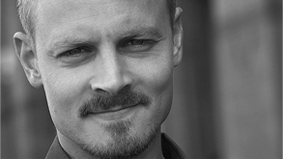Change, as we know, is a constant. But right now it feels like the change that is with all of us is both constant and all consuming. And often necessary. The hunger for a deeper understanding of how best to deal with massive change is tangible. I went to a seminar on the subject yesterday and you could almost feel it the room. Perhaps because the change that many organisations are faced with right now is more fundamental than simple behavioural change and is more like a cultural metamorphosis. Which is more about how people feel and think, the values they hold, what they believe.
Image courtesy
In the seminar they described the difference between ‘technical’ change, which is often focused on process and where the leader’s role is about providing solutions, clarifying roles, restoring order, maintaining norms, and ‘Adaptive’ change where leadership is about identifying the challenge, asking the right questions (rather than providing the solution), letting the organisation feel the pressures (within a range), challenging current roles, resisting the urge to clarify, exposing conflict, challenging unproductive norms. Adaptive change is about being comfortable with ambiguity, admitting that you don’t know all the answers, but that instead it is enough just to frame the question.
There were a couple of interesting metaphors used in association with this including that of a lily pond, to illustrate the fact that companies often focus on the visible behaviours ‘flowering’ on the surface, rather than the values, norms and preferences that support them (the stems which are only visible through the water) and the hidden root system of shared basic assumptions that nourishes the whole plant. I’d say the same was true of whole industries.
A useful model is to think about organisational change as a cycle between contentment (characterised by arrogance, complacency), denial (something or someone else is responsible), confusion (lots of uncoordinated initiatives at once) and renewal (constructive, collaborative, dynamic). The challenge of-course is to lead people and organisations through this cycle, because there are no short-cuts.
One phrase that I particularly liked was ‘toxic assumptions’ – the kind of assumptions that are deeply inherent and deeply unchallenged. Like the fact that there will always be a market for what you do, that people out there really care about the stuff you’re producing, that the way things have always been done are still valid. The example used was 90’s Marks & Spencer whose mental model was that it was invincible in the UK, automatically stood for quality, had a loyal core customer base, that it didn’t need to accept credit cards, or advertise, or stock brands, or have January sales.
Cultural change takes far longer and is much harder to achieve than just about any other type of change. It strikes me that in order to progress with the kind of fundamental change that is needed in many areas of our business, we have to look closely at our own toxic assumptions, and be comfortable with the fact that when we’re embarking on a journey we don’t always know where it will end (if indeed it will), but that shouldn’t ever stop us from just getting going.
Original Post: http://neilperkin.typepad.com/only_dead_fish/2009/02/toxic-assumptions.html




